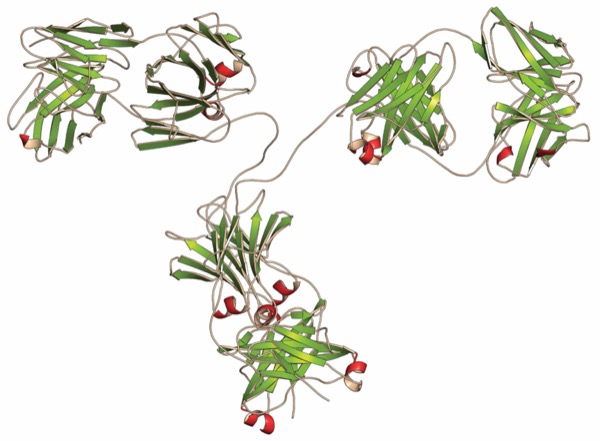PHILADELPHIA—Patients with Crohn’s disease or ulcerative colitis who had achieved a clinical response to subcutaneous infliximab induction therapy in the LIBERTY trials and went on to maintenance/extension therapy showed no meaningful differences in efficacy outcomes regardless of whether induction infliximab was given as monotherapy or in combination with immunosuppressants, according to a recent post hoc analysis presented at ACG 2024.
CT-P13, a subcutaneous form of infliximab, “has shown superior efficacy over placebo for maintenance therapy up to one year for patients who have moderate to severe CD and UC” (Gastroenterology 2024;167[5]:919-933), noted investigator Bruce E. Sands, MD. It also was shown to be “effective and well-tolerated for up to two years in these patients,” added Dr. Sands, the Dr. Burrill B. Crohn Professor of Medicine at the Icahn School of Medicine at Mount Sinai, in New York City, referring to data presented at DDW 2024 (abstracts Su1762 and Su1779).
The post hoc analysis presented as a late-breaking abstract at ACG 2024 (abstract 44) compared outcomes by baseline immunosuppressant use in patients receiving CT-P13 maintenance/extension therapy.
The sub-analysis included 192 CD patients (126 on monotherapy and 66 on combination therapy) and 237 UC patients (180 on monotherapy and 57 on combination therapy). Most of the patients on combination therapy were taking azathioprine.
“Some patients who had loss of response were permitted at week 22 to have a dose adjustment from 120 mg every two weeks up to 240 mg every two weeks,” Dr. Sands said, noting that the investigators “used the standard criteria for loss of response.”
Baseline characteristics of the monotherapy and combo therapy groups were roughly similar, with slightly more prior exposure to biologic agents or Janus kinase inhibitors in the combination therapy group, as well as a slightly lower use of concomitant corticosteroids at baseline.
The researchers looked at a variety of outcomes, including clinical remission, endoscopic remission and endoscopic response for CD, and clinical remission and endoscopic histologic-mucosal improvement for UC.
“By and large, monotherapy seems to do about as well as combination at both weeks 54 and 102,” Dr. Sands said. “Looking at efficacy regardless of dose adjustment—when the dose adjustment did not lead to the conclusion that the patient had not met the outcome—again, we don’t see much difference among all these different outcomes.”
In terms of pharmacokinetics, trough levels overlapped for both CD and UC. “At week 54 in CD patients, fewer of those on combination therapy were in the lowest tertile, although by week 102 there was not nearly as much difference between monotherapy and combination therapy,” he added. “Whereas in UC, at week 54, fewer of the patients on combination therapy are in the lowest tertile, but by week 102, it’s more or less evened out,” he said.
Looking at results by concentration tertile groups, those in the lowest tertile concentrations had the lowest rates of achieving the various outcomes, as would be expected, Dr. Sands said. “However, there do not really seem to be any consistent differences between patients who had monotherapy or combination therapy going by their tertile of drug level.”
In terms of safety, there were slightly more injection site reactions in the monotherapy group but no major differences between the two groups.
There were higher rates of antidrug antibodies in patients on monotherapy, but this did not appear to translate into differences in efficacy over the two years of observation.
{RELATED-VERTICAL}The investigators concluded there were no meaningful differences in efficacy of maintenance therapy in patients with a clinical response to infliximab induction, either as a monotherapy or in combination with immunosuppressants, at weeks 54 and 102.
They also found combination therapy resulted in lower antidrug antibodies with higher drug levels, which did not have an effect on efficacy, and that biomarker and safety were comparable between the two groups.
Jill J.K. Gaidos, MD, an associate professor and the medical director of the Inflammatory Bowel Disease Program at Yale School of Medicine, in New Haven, Conn., said the study provides additional information to inform practitioners on how to best use CT-P13, a newly available agent, in practice.
“It also allows for more informed conversations with patients when discussing treatment options,” she added. “One of our goals in IBD care is to balance medication efficacy and safety. Being able to use CT-P13 as monotherapy significantly decreases the potential adverse effects associated with the use of immunomodulator medications.”
—Monica J. Smith
Dr. Gaidos reported no relevant financial disclosures. Dr. Sands reported a financial relationship with Celltrion.

